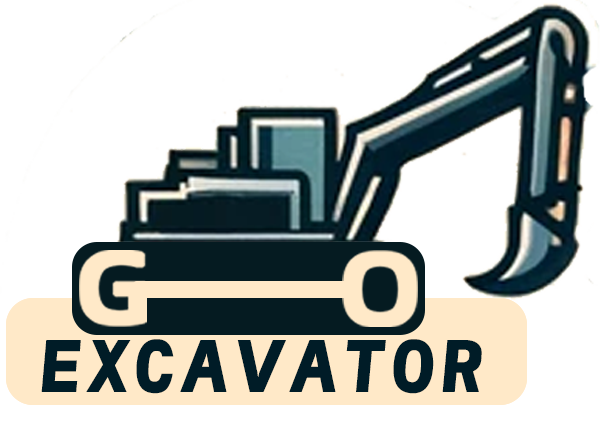
Excavator rakes are versatile attachments that extend the functionality of excavators beyond traditional digging and earth-moving tasks. These rakes are designed to handle a variety of tasks, from land clearing to forestry management, making them essential tools for many industries.
1. What is an Excavator Rake?
1.1 Definition and Overview
An excavator rake is a type of attachment that connects to the arm of an excavator. It consists of multiple sturdy tines or teeth that are spaced apart, allowing the rake to sift through soil, debris, and vegetation while leaving finer materials behind. This attachment is primarily used for tasks that involve separating and sorting materials, such as rocks, roots, and other debris.
1.2 Types of Excavator Rakes
There are several types of excavator rakes, each designed for specific tasks:
- Land Clearing Rakes: Used for removing vegetation and debris from large areas.
- Root Rakes: Specialized for uprooting trees and shrubs without disturbing the soil too much.
- Grapple Rakes: Equipped with hydraulic grapple arms for grabbing and moving large objects like logs and rocks.
2. Applications of Excavator Rakes
2.1 Land Clearing
One of the primary uses of an excavator rake is land clearing. This task involves removing unwanted vegetation, such as bushes, trees, and weeds, from large areas of land. The rake’s tines can easily penetrate the ground to uproot these plants, making it a crucial tool for preparing land for construction, farming, or other purposes.
2.1.1 Forestry Management
In forestry, excavator rakes are used to clear underbrush and small trees, which helps reduce the risk of forest fires. The rake can be used to create firebreaks—gaps in vegetation that help slow down or stop the spread of wildfires.
2.2 Debris Removal
Excavator rakes are excellent for sorting and removing debris from construction sites or after natural disasters. The spaced tines allow operators to sift through piles of mixed materials, separating large objects like rocks and branches from finer materials like dirt. This capability is particularly useful in post-storm cleanup efforts, where large amounts of debris need to be quickly and efficiently cleared.
2.3 Rock and Root Removal
For agricultural purposes, excavator rakes are often used to remove rocks and roots from fields. This process is essential for preparing the soil for planting crops. The rake can dig into the ground, pulling up rocks and roots that could otherwise hinder the growth of plants or damage farming equipment.
2.4 Grading and Leveling
While not its primary function, an excavator rake can be used for grading and leveling land. By dragging the rake across the surface, operators can smooth out uneven terrain, making it suitable for building foundations or other construction activities. This application is particularly beneficial in areas with loose or soft soil.
2.5 Material Handling
In addition to its land-clearing capabilities, an excavator rake can be used for material handling tasks. The rake can pick up and move large objects like logs, rocks, and debris piles, making it a versatile tool on construction and demolition sites.

3. Benefits of Using Excavator Rakes
3.1 Increased Efficiency
Excavator rakes significantly increase the efficiency of land-clearing and debris-removal tasks. Their ability to sift through materials and separate unwanted items from the soil reduces the time and effort required to prepare a site for construction or farming.
3.2 Reduced Environmental Impact
Using an excavator rake for land clearing can minimize environmental impact. The rake’s design allows it to remove vegetation with minimal disturbance to the soil, which helps preserve the land’s natural structure and reduce erosion.
3.3 Cost-Effective Solution
By combining multiple tasks—such as clearing, grading, and material handling—into a single operation, an excavator rake can save time and money. This efficiency reduces the need for additional equipment, labor, and fuel, making it a cost-effective solution for many projects.
4. Selecting the Right Excavator Rake
4.1 Consider the Task Requirements
When choosing an excavator rake, consider the specific tasks you need to perform. For example, if you’re working in forestry, a root rake may be more suitable, while a grapple rake might be better for material handling on a construction site.
4.2 Match the Rake to the Excavator
Ensure that the rake you select is compatible with your excavator’s size and hydraulic capabilities. Using a rake that is too large or too heavy for your machine can reduce efficiency and increase wear and tear on the equipment.
4.3 Quality and Durability
Invest in a high-quality excavator rake made from durable materials, such as high-strength steel. A well-built rake will withstand the rigors of heavy use and provide reliable performance over time.
Excavator rakes are invaluable attachments that expand the functionality of excavators across various industries. Whether you’re clearing land, removing debris, or preparing soil for planting, the versatility and efficiency of an excavator rake can significantly enhance productivity and reduce costs.
A Comprehensive Guide to Buying a Excavator Second Hand
Purchasing a second-hand excavator can be a cost-effective solution for your construction or landscaping needs. However, buying used machinery comes with its own set of challenges and considerations. This comprehensive guide will walk you through [...]
Comprehensive Guide to Hyundai Mini Excavators: Features and Prices
Mini excavators have become indispensable tools in the construction and landscaping industries. Hyundai Construction Equipment, a global leader in heavy machinery, offers a range of mini excavators known for their reliability, efficiency, and advanced features. [...]
How to Extend the Service Life of Excavator Parts
Excavators are indispensable machines in the construction and mining industries. They perform heavy-duty tasks that demand robust components and meticulous maintenance. Extending the service life of excavator parts not only reduces operational costs but enhances [...]
Kymron Excavators: Innovative, Sustainable Construction Machinery
In the dynamic world of construction and heavy machinery, Kymron has emerged as a game-changer. Specializing in advanced excavator technology, Kymron is redefining industry standards with its commitment to innovation, efficiency, and sustainability. Company Overview [...]
Bulldozer vs. Wheeled Excavator: Which Machine is Better for Moving Soil?
Moving soil is a fundamental task in construction, landscaping, and earthmoving projects. Choosing the right machinery for the job can significantly impact efficiency, cost, and project timelines. Two of the most commonly used machines for [...]
Why Are Small Excavators Favored? A Comprehensive Guide
In the world of construction and landscaping, efficiency and versatility are key. Among the myriad of machinery available, small excavators have risen in popularity. But what makes them so favored? Introduction to Small Excavators Small [...]




